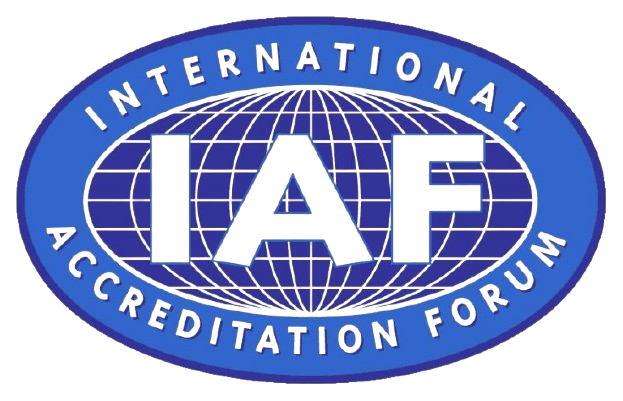

In today’s digital age, protecting personal data has become a crucial concern for organizations worldwide. Achieving ISO 27701 Certification is a significant milestone for any organization striving to establish a robust Privacy Information Management System (PIMS). This article explores the core components of ISO 27701, the process of obtaining certification, and the benefits it brings to organizations.
“Given below is the more detail about the ISO 27701 standard and you might be interested learning more about it. Rest of the part you can avail the certification from ICS to get your organizational dream come true by contact us and clicking below button. “
ISO 27701 is an extension to the ISO/IEC 27001 and ISO/IEC 27002 standards, focusing specifically on privacy information management. It provides guidelines for establishing, implementing, maintaining, and continually improving a Privacy Information Management System. The standard helps organizations comply with global privacy regulations such as the General Data Protection Regulation (GDPR) and other data protection laws.
The ISO 27701 standard introduces several key components essential for effective privacy information management. These components include privacy-specific control objectives and controls, requirements for establishing a PIMS, and guidelines for managing Personally Identifiable Information (PII). Moreover, it provides a framework for organizations to identify and mitigate privacy risks, ensuring the protection of PII throughout its lifecycle.
ISO 27701 emphasizes the importance of defining roles and responsibilities within the organization. It requires the appointment of a Data Protection Officer (DPO) or equivalent role to oversee the implementation and maintenance of the PIMS. Additionally, organizations must ensure that all employees understand their responsibilities concerning data privacy and are adequately trained to handle PII.
Obtaining ISO 27701 Certification involves several steps, beginning with a thorough assessment of the organization’s current privacy practices. The organization must conduct a gap analysis to identify areas that need improvement to meet the standard’s requirements. Following this, a comprehensive action plan should be developed to address the identified gaps.
The next step involves the implementation of the PIMS, integrating it with the existing Information Security Management System (ISMS) based on ISO/IEC 27001. This integration ensures a holistic approach to managing both information security and privacy. Organizations must update their policies, procedures, and controls to align with ISO 27701 guidelines. Regular training and awareness programs are essential to ensure that employees understand and adhere to the updated privacy practices.
Conducting internal audits is a critical aspect of the certification process. These audits help organizations assess the effectiveness of their PIMS and identify areas for improvement. Regular reviews and audits ensure that the organization remains compliant with the standard and continually enhances its privacy practices.
ISO 27701 Certification offers numerous benefits to organizations. Firstly, it enhances the organization’s reputation by demonstrating its commitment to protecting personal data and complying with privacy regulations. This certification builds trust among customers, partners, and stakeholders, who can be confident that their data is handled responsibly.
One of the primary advantages of ISO 27701 Certification is regulatory compliance. The standard helps organizations meet the requirements of various data protection laws, reducing the risk of legal penalties and fines. By adhering to ISO 27701 guidelines, organizations can navigate the complex landscape of global privacy regulations with greater ease.
Implementing ISO 27701 enables organizations to identify and mitigate privacy risks effectively. The standard provides a structured approach to managing privacy-related threats, ensuring that PII is protected throughout its lifecycle. This proactive risk management approach minimizes the likelihood of data breaches and enhances overall data security.
Achieving ISO 27701 Certification boosts customer confidence in the organization’s ability to safeguard their personal information. Customers are more likely to engage with organizations that demonstrate a commitment to data privacy and security. This increased trust can lead to improved customer loyalty and a competitive advantage in the market.
ISO 27701 Certification is not a one-time achievement; it requires ongoing efforts to maintain and improve the PIMS. Organizations must regularly review and update their privacy practices to adapt to changing regulations and emerging threats. By fostering a culture of continuous improvement, organizations can stay ahead of the curve and remain compliant with evolving privacy requirements.
In addition to maintaining compliance, organizations must prepare for future privacy challenges. This involves staying informed about new regulations, technological advancements, and industry best practices. By proactively addressing these challenges, organizations can ensure that their PIMS remains robust and effective in protecting PII.
ISO 27701 provides a comprehensive framework for managing privacy information and ensuring regulatory compliance. Achieving ISO 27701 Certification demonstrates an organization’s commitment to protecting personal data and adhering to global privacy standards. By following the standard’s guidelines, organizations can enhance their reputation, build customer trust, and effectively manage privacy risks. Continuous improvement and future readiness are essential to maintaining the effectiveness of the PIMS and staying ahead of privacy challenges. ISO 27701 Certification is a valuable asset for organizations striving to excel in privacy information management.

For Quick Contact Leave Your Message We will Contact You Shortly Or Call Us At Given Numbers or Email Addresses. We Love to Deliver Our Efficient Services.
Copyright All Rights Reserved © 2025